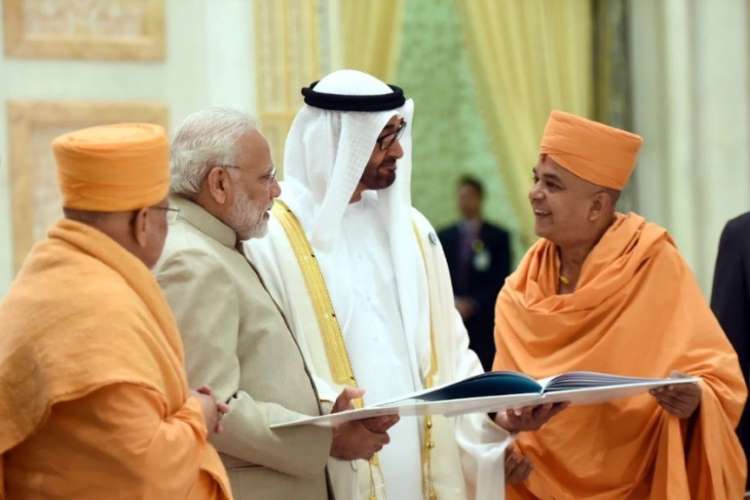Developing nations must receive “a fair share in the global carbon budget,” allowing just and equitable development without endangering the planet, Prime Minister Narendra Modi said at the COP28 climate talks in Dubai. The 28th Conference of the Parties (COP28) to the United Nations Framework Convention on Climate Change (UNFCCC) was held in Dubai, UAE, from November 30 to December 12, 2023.
Modi’s statement reflects India’s stance and that of the global South. India’s role is significant, being one of the world’s largest and fastest-growing economies and a key player in global climate action.
READ I RBI gives green light to SROs in banking, shadow banking
India’s climate goals
In 2015, India submitted its Intended Nationally Determined Contribution (INDC) to the UNFCCC, pledging to reduce its Gross Domestic Product (GDP) emissions intensity by 33-35% from 2005 levels by 2030. It also aimed to increase non-fossil fuel electricity to 40% and create a carbon sink to absorb 2.5-3 billion tonnes of CO2 equivalent through afforestation and forest conservation. By ratifying the Paris Agreement in 2016, India committed to limiting global temperature rise to well below 2 degrees Celsius.
India is undergoing significant transformations, especially in its energy sector, aiming to become a major economy primarily powered by clean energy. It plans to reduce emissions intensity by 45% from 2005 levels by 2030.
Despite India’s impressive advancements in renewable energy, reconciling rapid economic growth with climate goals remains a complex task. Balancing infrastructure development and environmental protection is crucial for India’s future. Investing in cleaner technologies, fostering sustainable cities, and promoting a responsible resource management culture are key factors in this equation.
Moreover, ensuring equitable distribution of environmental benefits is essential to prevent unsustainable patterns driven by socioeconomic inequalities. Ultimately, India’s path to green growth lies in integrating climate considerations into all development policies and fostering a national understanding that environmental well-being is fundamental to a thriving future.
COP28: A mixed bag for India
India has progressed towards its climate goals but also faces substantial challenges. It has become a leader in renewable energy, with significant solar and wind power capacity. The national budget allocated over $4.25 billion for energy transition, reflecting this commitment. However, 73% of India’s electricity still comes from fossil fuels, mainly coal, only slightly decreased from 76.7% in 2015. The government aims for renewables to meet 50% of energy needs by 2030, raising the target for non-fossil fuel energy capacity from 173 GW to 500 GW.
At COP28, India navigated opportunities and challenges in advancing its climate agenda. It advocated for more ambitious and equitable climate action, especially from major emitters, while representing developing countries. However, India faced challenges and uncertainties, including political and diplomatic tensions with key climate partners, potentially impacting its ability to achieve climate goals and influence COP28 outcomes.
Significant events at COP28 included the operationalisation of the Loss and Damage Fund (LDF), designed to compensate low-income nations affected by climate change. Initial commitments totalled approximately $725 million, which many considered insufficient. India declined to contribute, citing high recent emissions and arguing for the historical responsibility of developed nations. Controversy also arose over the Health and Climate Change declaration at COP28. India hesitated to agree, concerned about commitments to reduce greenhouse gases in healthcare cooling applications, given the growing demand for medical services.
While COP28 presented critical milestones like the operationalisation of the LDF, it also highlighted the continued need for stronger international cooperation. Developed nations must fulfil their historical responsibility through substantial financial and technological support for developing countries like India.
Collective action is paramount to bridge the equity gap and accelerate global climate action. India can further strengthen its leadership role by fostering South-South collaboration and advocating for climate solutions that prioritise the needs of vulnerable communities. Ultimately, transitioning to a sustainable future requires a united global effort, recognising that individual progress is inextricably linked to collective responsibility.
The Prime Minister emphasised India’s commitment to climate action before COP28, marking a critical moment for India to showcase its climate aspirations and leadership. Despite achievements in renewable energy, challenges remain in reducing fossil fuel dependence and emissions intensity.
India needs a comprehensive climate strategy, encompassing increased renewable investments, strict emission standards, and an all-encompassing climate policy that aligns environmental, social, and economic objectives. Strengthening international collaborations and promoting public awareness are essential for India’s commitment to global sustainability.
(Suresh P Singh is Senior Director, VeKommunicate, a public policy research and advocacy organiation. Dr Md Mashhood Alam is Senior Research Associate, BRCG Research & Development Foundation. Views are personal.)

